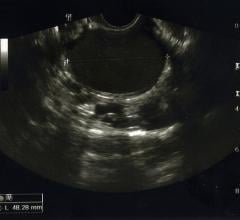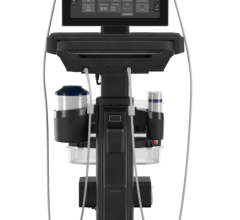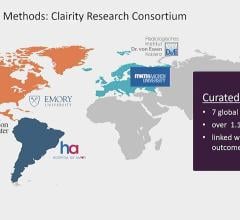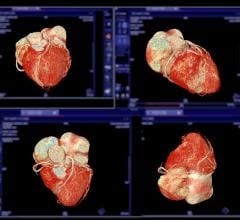
December 11, 2015 — The Radiological Society of North America (RSNA), in collaboration with The Sequoia Project, introduced the Image Share Validation Program, a conformity assessment program that will set the standard for consistency in the marketplace. The program will encourage the adoption of image-sharing capabilities by imaging vendors and radiology sites, expanding access to medical images and reports whenever and wherever they are needed.
Image sharing improves physician and patient communication and engages patients more actively in their healthcare. Improved access to imaging records will enable better-informed decisions about patient care and lead to more efficient utilization of imaging systems and improved patient safety by eliminating redundant radiology procedures.
The Image Share Validation Program will test the compliance of vendors’ systems using quality standards determined most effective for accurate and efficient exchange of medical images, including those used in the RSNA Image Share Network.
The program is ideal for vendors of imaging systems such as reporting systems, radiology information systems (RIS) and picture archiving and communication systems (PACS) that wish to enable those systems to connect to networks for sharing images with providers and patients or health information exchange (HIE) systems vendors that wish to enhance their systems to exchange medical images and reports.
“Interoperability has been recognized as perhaps the biggest gap in what the health information technology domain has to offer patients,” said David S. Mendelson, M.D., FACR, vice chair of radiology IT at the Mount Sinai Health System in New York, N.Y. “The RSNA Image Share Validation program in partnership with The Sequoia Project is sending a message. To promote the best interest and care of our patients, the world of imaging is ready to rapidly advance standards-based solutions for imaging interoperability. These are standards employed elsewhere in the world and present a solution that can evolve as new technologies arise.”
The Validation Program builds on the success of the RSNA Image Share Network, a nationwide imaging information exchange providing patient-focused image sharing.
Starting with a pilot testing program in 2016, RSNA will conduct validation testing of commercial systems for image sharing capabilities based on Integrating the Healthcare Enterprise (IHE) profiles. Testing will be conducted with the support of Mallinckrodt Institute of Radiology (MIR) at Washington University, St Louis, and The Sequoia Project. Vendors who successfully pass the testing program will be awarded the right to use the RSNA Image Share Validation mark to convey to purchasers that their products have achieved compliance with the capabilities tested in the program.
The Sequoia Project will also assist in administering the RSNA Image Share Validation program and in communications, outreach and promotion to its constituent members. The Sequoia Project provides a corporate home for multiple interoperability initiatives, including the eHealth Exchange, a health data sharing network representing 40 percent of all U.S. hospitals, federal agencies, dozens of HIEs, thousands of clinics and 100 million patients.
Validation provides a number of benefits to providers and patients, including enhanced quality of care, improved efficiency, reduced costs and standards-based interoperability to spur innovation.
“We can show other providers of health information how easily this can be done,” Mendelson said.
For the initial pilot program, RSNA will offer validation of four bundles of functionality, based on IHE profiles and actors:
- XDS-I Document Source and Consumer;
- XDS-I Registry and Repository;
- XCA-I Gateway; and
- Patient-focused Image Sharing through a PHR System.
Test participants can choose to be tested for any combination of bundles.
The Image Share Validation Program pilot project is partially funded by the National Institute of Biomedical Imaging and Bioengineering (NIBIB). The validation program is designed to be self-sustaining after its initial launch.
For more information: www.sequoiaproject.org


 April 16, 2024
April 16, 2024 








